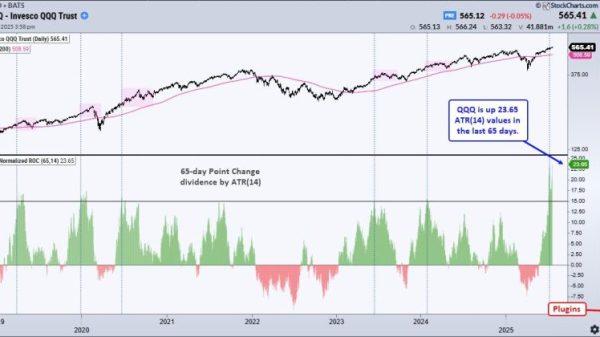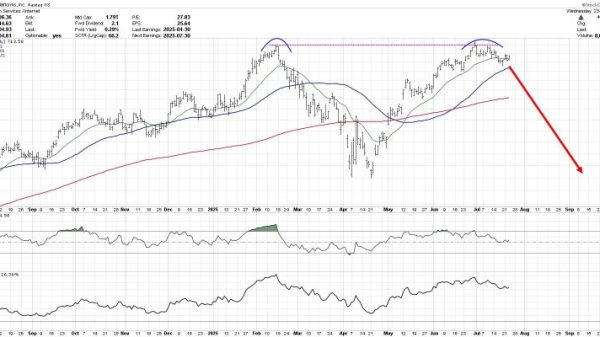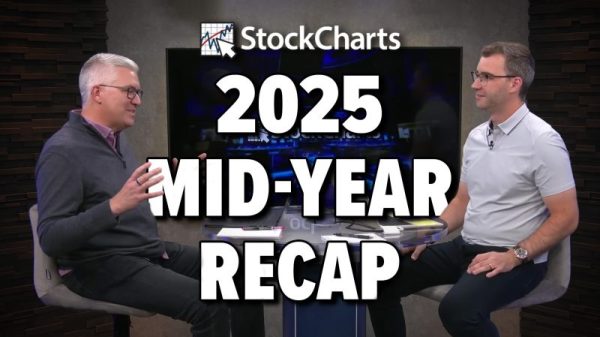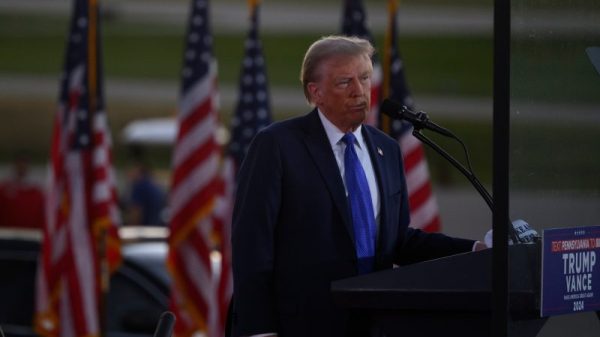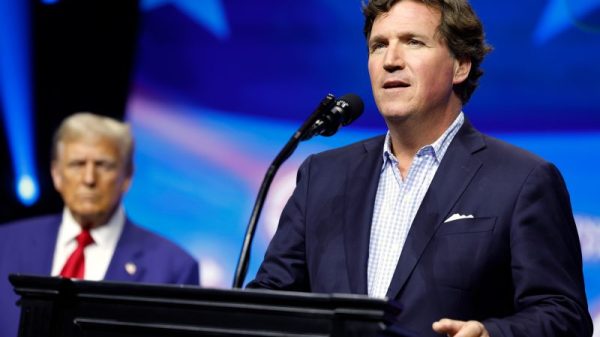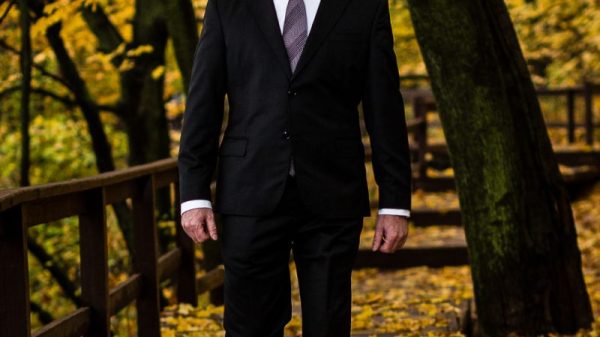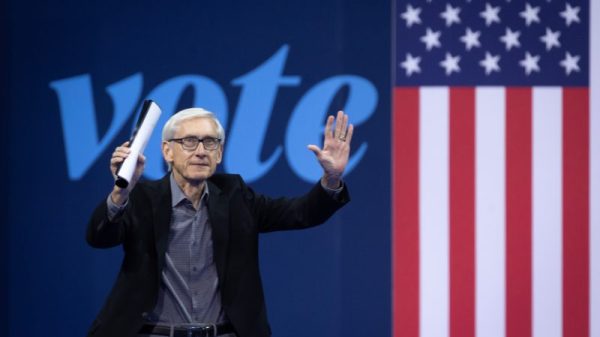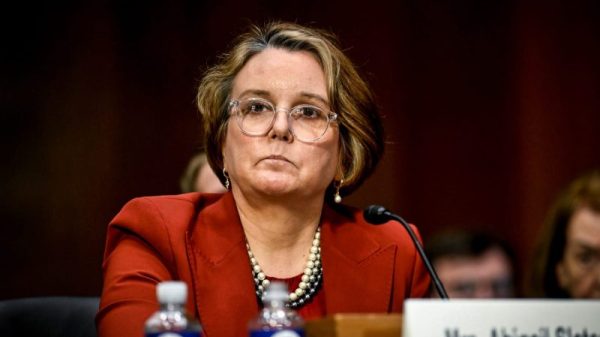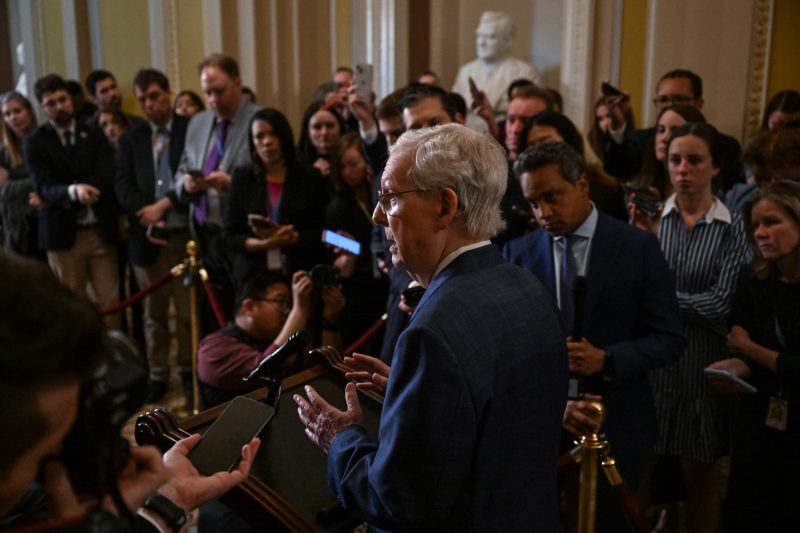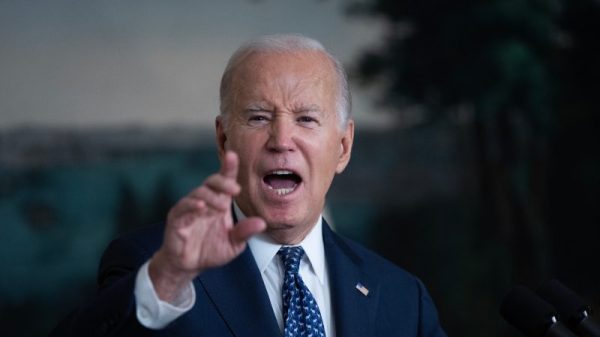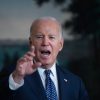Senate Minority Leader Mitch McConnell figured something out during the dozens of heated debates the Republicans had about funding Ukraine’s defense against the Russian invasion.
“One thing I have noticed about the critics of the [national security legislation] is they don’t like being called isolationist. Which, to me, is progress,” the Kentucky Republican said during an interview Tuesday.
So, as those debates took place behind closed doors, McConnell would regularly needle his fellow Republican senators with that label and put them on the defensive.
“Then they end up trying to explain how this is really not isolationism, and those explanations are always totally inadequate,” McConnell said.
After about seven months of haggling over Ukraine — including an initial foreign aid package supported by just 22 Republicans, less than 45 percent of McConnell’s caucus — 79 senators voted Tuesday to send the $95 billion package to defend Ukraine, Israel and allies in Asia to the White House for President Biden’s signature.
McConnell took a well-deserved victory lap as the central GOP figure on Capitol Hill who propelled the legislation across the finish line, despite fierce resistance from some Republicans, a timid approach from House Speaker Mike Johnson (R-La.) and lukewarm, at best, support from ex-president Donald Trump.
On Tuesday morning, he delivered a nearly 15-minute opening speech that captured the global sweep — “The holiday from history is over” — and poked at the “misguided fantasies” of the “America First” movement. He went to the third-floor press gallery for a marathon news conference, fielding two dozen questions on topics such as European security and TikTok, then sat for several media interviews.
Overcoming polio as a child, McConnell has always taken a slow and steady approach to his political career, dubbing his 2016 memoir “The Long Game.” But this debate tested the senator of nearly four decades and the direction of the national GOP in ways that, at times, made it appear as if he had fallen out of step with modern conservatism.
“I don’t have many specialties, but if I do, it’s long games, and this game ended up being a lot longer than I had hoped,” McConnell said.
Starting in September, McConnell, now 82, made this his defining issue and practically staked his legacy on winning this round of the fight. Almost every day the Senate was in session, he delivered a speech about defending Ukraine and taking the traditional muscular approach defined by presidents with the last names Reagan and Bush.
He and White House officials debated including any Ukraine funds in a must-pass government funding bill at the end of September. When that bill passed, with money for Ukraine, many Senate Republicans linked arms with House GOP leaders in demanding that no funds would go to President Volodymyr Zelensky unless border legislation got approved.
So McConnell — who considered the border a separate crisis but one deserving attention — deputized Sen. James Lankford (R-Okla.) to lead bipartisan talks on an immigration bill. Trump eventually declared his opposition to the border bill — keeping it alive as a political issue in the fall elections — the talks collapsed, and by early February, McConnell’s Ukraine efforts seemed doomed to fail.
The Senate leader saw the conservative anti-Ukraine fixation as growing through the ex-Fox News host Tucker Carlson, who used to regularly rant against Zelensky for an audience of 3 million-plus people. Even after Carlson was fired last year, most GOP presidential candidates followed Trump into the MAGA position of not wanting to send more money to Ukraine.
“He had a big, big audience, and a big audience of a lot of rank-and-file Republican voters,” McConnell said of Carlson. “So a lot of my members started hearing what I thought was provable nonsense, as if it were fact, and it metastasized into the presidential race.”
But McConnell never gave up, and he worked with Senate Majority Leader Charles E. Schumer (D-N.Y.) to keep the entire package together, particularly aid for Ukraine and Israel, knowing Ukraine had huge Democratic support and Israel had massive GOP support. They got 70 votes for their bill in mid-February, without any border security provisions. Two weeks later, McConnell announced that he would retire as GOP leader at the end of this year, after a record 18 years as party leader.
But with less than half of the GOP senators supporting the aid package, McConnell still had work left to do in nudging his counterpart in the House, Johnson, to call a vote on the Senate bill as the speaker’s extreme-right flank threatened to try to oust him if he included Ukraine funds in any legislation.
Schumer said that he and McConnell gamed out a strategy before a late-February Oval Office meeting with Biden, Johnson and the other congressional leaders, deferring to McConnell as the initial one to prod the speaker.
“We told him it was the only way to go,” Schumer told The Washington Post’s Liz Goodwin in a Tuesday interview.
The extended failure of border talks and Johnson’s more than two-month inaction hurt the defenses in Ukraine. But that extra time allowed lawmakers to receive more briefings from military officials and to meet with European allies in Washington and while traveling abroad.
The combined effect, McConnell said, was a discernible shift inside his own conference on the state of global affairs.
“I think we’ve had a lot of really healthy conversations about the actual facts,” he said, noting that the more “America First”-aligned senators became more marginalized. “More people focused on the nature of the threat and our role in pushing back against the threat. There were others who I think were mostly concerned about what kind of experience they had in town hall meetings. But for those who were willing to focus on the facts, it was a compelling argument that we should do what we did.”
Johnson’s slight modifications to the Senate bill, including a process that allowed four separate votes on the different security buckets, were deemed acceptable by Biden and the Senate leaders.
On Saturday, all four received overwhelming support, with even the Ukraine vote getting nearly half of the House GOP and a unanimous vote from Democrats.
As the Senate moved to pass the new version Tuesday, Republicans increasingly wanted to be on what they consider to be the right side of history, against Russian leader Vladimir Putin.
It helped that the GOP presidential primary is over and that Trump issued a few statements recently about Ukraine that came across as neutral. And the presumptive GOP presidential nominee is mostly focused these days on his criminal trials, making it easier for Republicans to vote their conscience.
Republicans like Lankford and Sen. Markwayne Mullin (Okla.), who both cited process reasons for their February votes against the security aid, joined with seven other Republicans to flip to yes on Tuesday’s key vote.
“It’s squarely in America’s best national security interest. It sends a message to the world that America is still the beacon of freedom,” Mullin said in a statement that sounded as if McConnell had written it himself.
With 31 Republicans now supporting his position, almost two-thirds of his caucus, McConnell spiked the ball. “I think we have turned the corner on the isolationist movement,” he declared at a post-vote news conference.
An hour later, the GOP leader offered a slightly more realistic view about isolationists and their “holiday from history,” a famous line written by George Will after the 2001 terrorist attacks.
“Well, I hope it’s over. I’m not sure just one thing will do it, but it’s a good day,” he said in the interview.
McConnell’s leadership tenure has lasted so long that only seven other Senate Republicans have served with a leader other than the gentleman from Kentucky.
He is looking forward to no longer being the “designated spear-catcher,” his term for how congressional leaders take so many political hits on behalf of their caucus. He said his health is fine after last year’s freezing episodes, which followed a brutal fall in March 2023, and he intends to serve out the last two years of his term freed from the burdens of leadership.
“After 18 years of kind of getting beat up and defending everybody else, I’m kind of looking forward to pursuing what I want to pursue and saying what I want to say,” McConnell said.
McConnell vowed to keep promoting a “Reagan-esque” vision on foreign policy as his “number one focus for the next two years.”
And after years of ignoring shouted media questions as he made the short walk to the Senate floor from his office, McConnell wants to sound off on issues of the day like any other rank-and-file senator.
“I might even start hanging around in the halls answering questions,” he said. “There’s some advantages to not having this job.”

